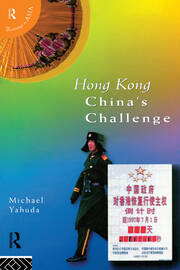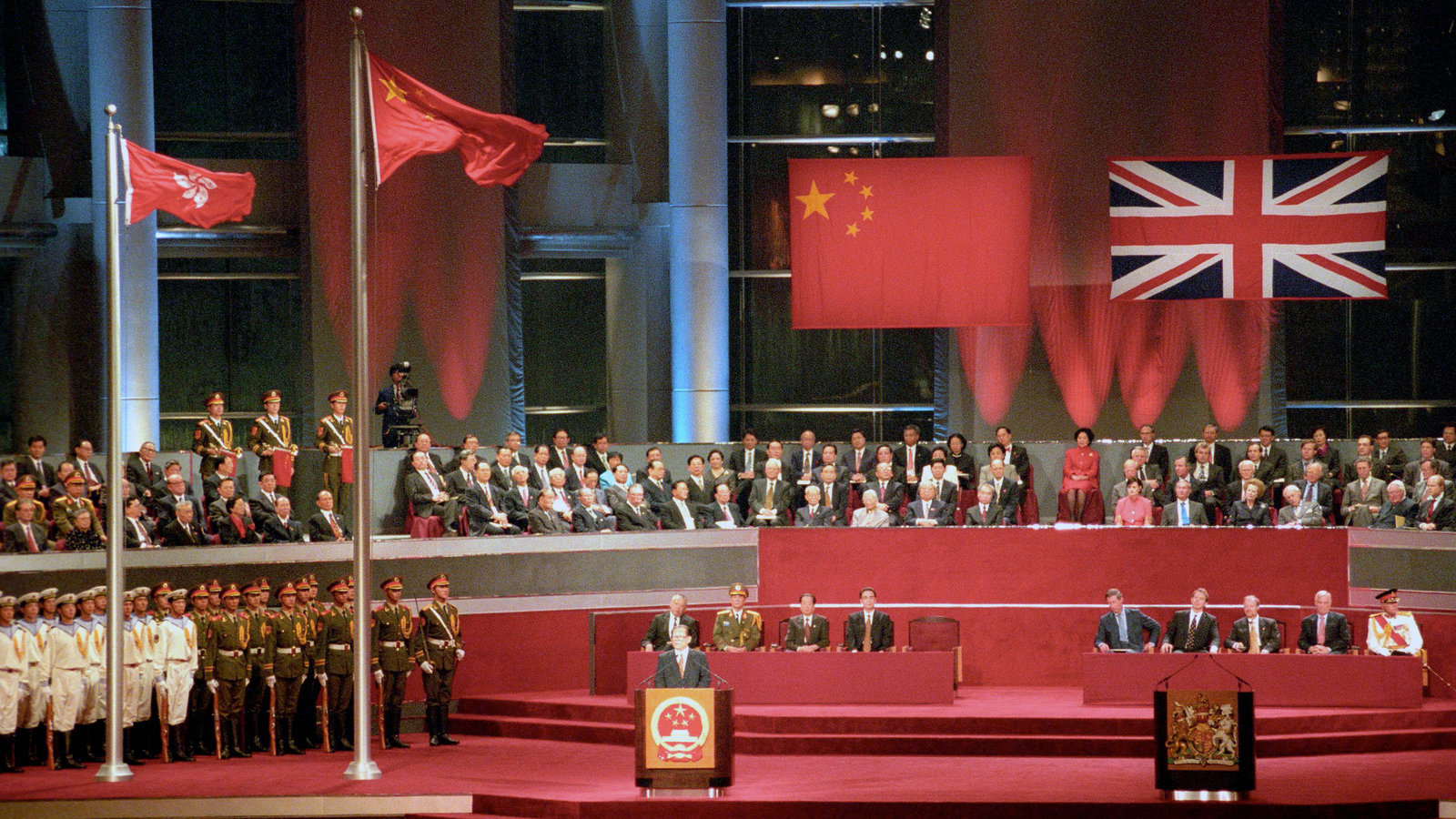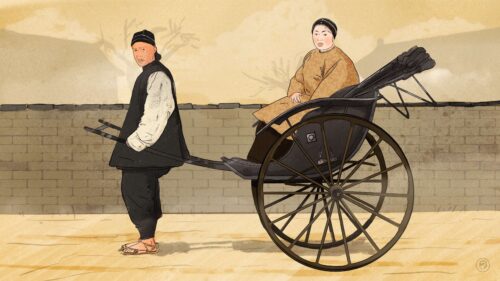This is book No. 33 on Paul French’s Ultimate China Bookshelf.

Blurbs:
“Yahuda has produced a succinct, extremely well-informed, and highly readable volume offering analytical insights into the Hong Kong factor in China’s domestic and external prospects.”
—The Journal of Asian Studies
“Yahuda offers us a careful and balanced analysis of why we have good reason for optimism…the book’s tone is scholarly, but it is not pedantic or inaccessible. Most importantly, Yahuda’s analysis is underwritten by long and sustained research on Hong Kong and Chinese politics, unlike some other scholars whose work on Hong Kong is based on an extremely brief and superficial acquaintance with the territory’s politics. In short, for those interested in understanding the politics of Hong Kong’s transition, Yahuda’s book is highly recommended.”
—Pacific Review
“This book is still a very solid, succinct, perceptive, and highly readable volume yielding valuable insights to illuminate the Hong Kong factor in the P.R.C.’s domestic and international development. It will serve as a good baseline from which to appreciate the more recent troubling events delineating the Beijing-SAR interactions.”
—The China Quarterly
About the author:
Michael Yahuda (1940–) graduated from the Modern Chinese Language and Literature program in 1963 at the School of Oriental Studies, University of London. He was awarded an M.Sc. in economics with a mark of distinction in 1966. He then taught for many years in the Department of Politics at the University of Southampton, 1966–1973, and then became a professor in the Department of International Relations at the LSE in London. Since 2003, he has been a Visiting Scholar at the Sigur Center for Asian Studies, the Elliott School for International Affairs, George Washington University.
As well as writing on Hong Kong just prior to the handover, Yahuda has written a number of books on international relations in the Asia-Pacific region and Sino-Japanese relations, plus more than 250 scholarly articles.
The book in 150 words:
It is surprising that the historic handover of Hong Kong to China in 1997 inspired so few scholarly books. Of the few that were issued, Michael Yahuda’s was by far the most widely known and read. It was written prior to the handover and so discusses the likely outcomes of the process, especially in terms of the potential benefits to China’s economy. Yahuda argued that China’s handling of the transition would have enormous implications for Beijing’s international standing and that China would be judged on its ability to retain the special energy and economic vibrancy of the former colony. Yahuda reviews the issues, how both sides handled problematic negotiations, and how they dealt with conflicting economic interests. Yahuda concluded by suggesting that a laissez-faire approach to the lucrative Hong Kong markets would ensure that China harnesses the full political and economic benefits of sovereignty over the former colony.
Your free takeaways:
When China resumes sovereignty of Hong Kong on 1 July 1997 it will begin an undertaking of enormous significance for the future of China itself. The way in which it lives up to its promise and legal obligations will not only determine the fate of the former British colony and its six million inhabitants, but it will also shape the evolution of China’s political identity and its integration into the international community.
It should be recognised that the return of Hong Kong to Chinese sovereignty will pose many problems to China itself…in particular it would serve as an attractive model for all those in China who seek the benefits of greater legality and increased democratic accountability.
The economic significance of Hong Kong may be said to be a direct result of the communist victory in China in 1949. For the previous hundred years Hong Kong had been a relative backwater, servicing little more than Guangdong Province as it was outshone by Shanghai.
China’s leaders are engaged in a bold experiment without parallel in modern history and the degree of their success will be tested not only in terms of the well being of Hong Kong, but in terms of the capacity of China to adapt still further to the norms and practices of international society.
Why this book should be on your China bookshelf:
A clear-eyed, slightly passionless assessment of the run-up to the Hong Kong handover is probably what was most needed in 1996 as it loomed large on the horizon. Perhaps it still is now, as the Joint Declaration and other agreements appear to have been largely forgotten by both London and Beijing.
Yahuda’s assessment in his book was different for the time. Pretty much all the talk, commentary, op-eds, and articles in learned journals considered what the impact of the handover would be on Hong Kong and Hongkongers. Yahuda did, too, but he also considered the impact of Hong Kong’s reintegration on the P.R.C.’s own future development and external orientation. Hong Kong as both a valuable asset and a potential liability.
Right now, that question may need a reassessment, with the clampdown by Beijing on Hong Kong, but over a longer-term analysis we may see the events of 2019 in Hong Kong, Beijing’s reaction, the eagerness to please Beijing shown by many politicians and lawmakers in Hong Kong, in a different light. Yahuda concludes that the success or failure of an integrated Hong Kong will be of direct relevance to those in mainland Chinese striving for development, affluence, and national unity.
In 1996, Yahuda was praised for not leaning toward the sensationalist — neither the Thatcherite notion of immigrant “swarms” from Hong Kong, nor the protestations that tanks would roll across the border at midnight. Much has happened in Hong Kong, but neither of those alarmist (and in the former case, invariably racist) phenomena occurred. Yahuda was also keen to stress that Beijing, whatever its rather militaristic inclinations as seen in 1989, was keen to not overly alarm Taiwan as Taipei watched nearby events closely.
If Yahuda overplays his hand anywhere in the book, it is perhaps conceding more moral motives to Britain than probably in fact existed. Any notion of democracy was a last-minute notion, designed more to frustrate Beijing than out of genuine belief in the concept for Hong Kong. Misunderstanding of this has led to a generally rather rosier assessment of “Last Governor” Chris Patten’s tenure than is perhaps deserved. Yahuda also mentions Britain’s “sense of guilt,” yet does not mention the staunch refusal of the Tory Thatcher government (of which Patten was a part of, until he was deselected by his constituents democratically and then “appointed” undemocratically as governor in Hong Kong) to accept any notion of allowing immigration to Britain by the 3.5 million potential passport holders in the colony.
Yet, as noted, the number of “handover” books was remarkably small, given the press attention the event attracted. Among this handful, Yahuda stands out as by far the best.
Next time:
At some point we will, of course, return to Hong Kong and consider its place in the 21st century and also as a subset of Chinese literature. But for now a change of tack and three memoirs of foreigners who sought to immerse themselves in modern China: just prior to the Second Sino-Japanese War, just afterward and into the early years of the People’s Republic, and finally an immersive experience of the later post-Mao reform era. The long and usually impossible quest to truly get under the skin of Chinese life, culture, and manners by three Westerners who gave it their best shot.







